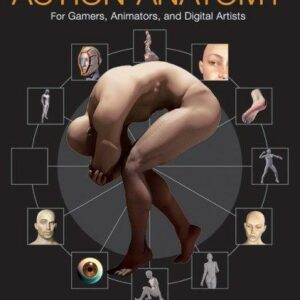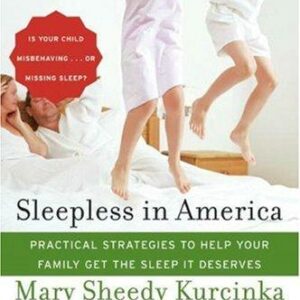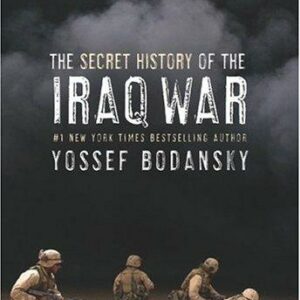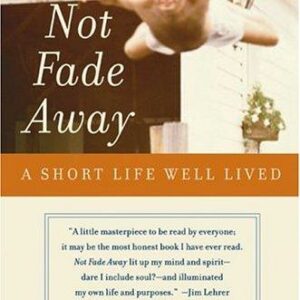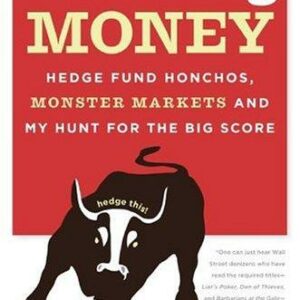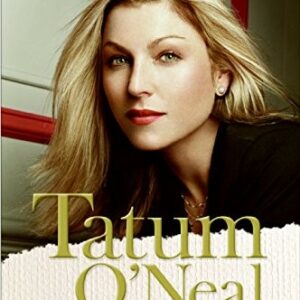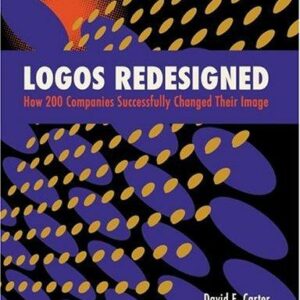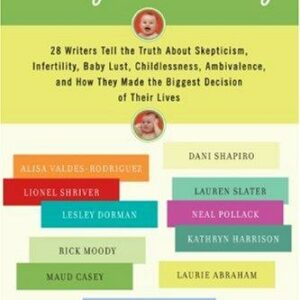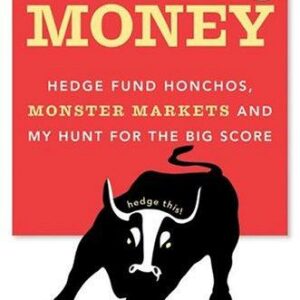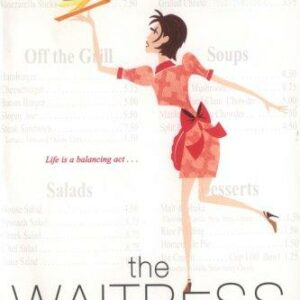Having and Being Had
$17.00
| Title | Range | Discount |
|---|---|---|
| Trade Discount | 5 + | 25% |
- Description
- Additional information
Description
A NEW YORK TIMES EDITORS’ CHOICE
NAMED A BEST BOOK OF THE YEAR BY TIME , NPR, INSTYLE, AND GOOD HOUSEKEEPING
“A sensational new book [that] tries to figure out whether it’s possible to live an ethical life in a capitalist society. . . . The results are enthralling.” —Associated Press
A timely and arresting new look at affluence by the New York Times bestselling author, “one of the leading lights of the modern American essay.” —Financial Times
“My adult life can be divided into two distinct parts,” Eula Biss writes, “the time before I owned a washing machine and the time after.” Having just purchased her first home, the poet and essayist now embarks on a provocative exploration of the value system she has bought into. Through a series of engaging exchanges—in libraries and laundromats, over barstools and backyard fences—she examines our assumptions about class and property and the ways we internalize the demands of capitalism. Described by the New York Times as a writer who “advances from all sides, like a chess player,” Biss offers an uncommonly immersive and deeply revealing new portrait of work and luxury, of accumulation and consumption, of the value of time and how we spend it. Ranging from IKEA to Beyoncé to Pokemon, Biss asks, of both herself and her class, “In what have we invested?”Praise for Having and Being Had:
“A sensational book . . . Keenly aware of her privilege as a white, well-educated woman who has benefited from a wide network of family and friends, Biss has written a book that is, in effect, the opposite of capitalism in its willingness to acknowledge that everything she’s accomplished rests on the labor of others.” —Associated Press
“Sharp and snappy. . . . Having and Being Had picks apart the ethics behind our capitalist society, culminating in a powerful look at the ways in which we assign value to the people, places and things that comprise our lives.” —Time
“Incisive, impressive and often poetic . . .The marvel of this book, and of Ms. Biss’s prose in general, is the spare and engaging way she interrogates such complex and abstract concepts. With references to Adam Smith and Dire Straits, Karl Marx and Scooby-Doo, she turns what is essentially a chronicle of white guilt and anxious privilege into a thoughtful and nuanced meditation on the compromises inherent in having a comfortable life.” —The Wall Street Journal
“A major achievement. Having and Being Had, rather than leading through narrative, turns individual words and phrases, like capitalism, consumers, great America, husbandry, art, and work, into fields of inquiry in order to frame a life. With astute consideration, this expansive and intimate accumulation asks the questions that touch all our lives.” —Claudia Rankine, author of Citizen
“Curious, sharp, funny (truly) and full of questions we, as a society, have forgotten how to ask about how we spend, what we buy [and] why we work.” —NPR
“Biss has long been drawn to topics that lend themselves to polemic, which she approaches in a spirit that’s resolutely unpolemical. Her intellect is omnivorous, roving, and humane. . . . That clarity of purpose is what makes Biss refreshing. . . . Her commitment to her art is complete and unembarrassable.” —The Cut
“Having and Being Had delights because of Biss’s frankness . . . [Biss] richly peoples Having and Being Had with friends, neighbors, and family, bringing into conversation scholars, theorists, economists, and writers ranging from Emily Dickinson to the late David Graeber. She challenges the reader’s ideas of words once thought familiar—leisure, service, investment—and tests the tensions between work, art, and money.” —The Rumpus
“If you feel weird about your privilege and role in capitalism, then much of this incisive essay collection will resonate with you. If not, you should read it anyway—perhaps especially then. It takes a hard look at the trappings and impacts of wealth in a way that will make you think about your life, too.” —Good Housekeeping
“Eula Biss’s prescient new book gave me new language for things I didn’t know I felt about money, capitalism, and my place inside of an economy that always requires so much of me and gives back so little. A brilliant, lacerating reexamination of our relationship to what we own and why, and who in turn might own us in ways we didn’t know we consented to—what could be more necessary now?” —Alexander Chee, author of How to Write an Autobiographical Novel
“[Biss writes with] confidence, accessibility, and provocation. . . [Her] writing is calm and precise, without flourish, so clear it belies the difficulty of writing prose so crystalline.” —Chicago Tribune
“[Biss explores] the candid ways we reveal our own biases around money, class, wealth, property and work. . . . Having and Being Had is a reminder that even discussing our contemporary chaos is an act of awakening and a call to action.” —Los Angeles Times
“Excellent . . . Biss is unflinching when broaching [her] often taboo subjects, and approaches them through a personal lens, writing about her own experience with home-ownership, gentrification, marital equality, motherhood, and being a working artist.” —Refinery29
“A collection of essays circling elegantly around the object of her study. . . . [that is,] the moments we realize that consumerism has begun to rust our souls.” —The New Republic
“Delicious . . . Biss is not only unafraid of taboo, she leans into it. She uses the form of the essay to interrogate, break apart, and complicate something in order to make it fully known and understood. . . . Disarming and effective.” —The Washington Independent Review of Books
“With her signature moving and relatable prose, Eula Biss wrestles honestly with the everyday contradictions that accompany the effort to be a good person (and a good artist) in a capitalist world.” —ARTnews Magazine
“Compulsively readable . . . blends research, reflection and richly rendered personal experience. . . . This is a book that asks to be read, absorbed and read again.” —BookPage
“[A] strong new meditation on buying and owning in a society as a white woman where some people descend from Americans once considered property themselves. . . . This is an essential book for our out-of-control times.” —Lit Hub
“A stylish, meditative inquiry into the function and meaning of twenty-first-century capitalism. . . . Biss doesn’t shy away from acknowledging her own privilege, and laces her reflections with unexpected insights and a sharp yet ingratiating sense of humor. . . . this eloquent, well-informed account recasts the everyday world in a sharp new light.” —Publishers Weekly
“Eula Biss is known for stepping off the plank into turbulent waters that others might fear or avoid, armed with wry wit and a radical lucidity. Having and Being Had continues this journey, offering us a probing tour of capitalism and class that sidesteps posturing and jargon in favor of clarity, humility, and incitement.” —Maggie Nelson, author of The Argonauts
“No contemporary writer I know explores and confronts her own societal responsibilities better than Eula Biss. In Having and Being Had she unpacks capitalism as a lived practice of a thinking person. She makes you surprised and delighted by the way she extracts complex ideas from mundane situations.” —Aleksandar Hemon, author of The Lazarus Project
“In this witty, genre-bending book, Eula Biss smashes the taboo against talking about money with exhilarating results. Her investigation ranges from the strictly financial to the broadly philosophical as she accounts for her life with disarming honesty and grace.” —Jenny Offill, author of WeatherEula Biss is the author of four books, including the New York Times bestseller On Immunity: An Inoculation, which was named one of the 10 Best Books of 2014 by The New York Times Book Review, and Notes from No Man’s Land: American Essays, which won the National Book Critics Circle Award for criticism. Her work has appeared in Harper’s Magazine, The New York Times, The Believer, and elsewhere, and has been supported by an NEA Literature Fellowship, a Howard Foundation Fellowship, and a Guggenheim Fellowship.
Isn’t It Good?
What does it say about capitalism, John asks, that we have money and want to spend it but we can’t find anything worth buying? We’re on our way home from a furniture store, again. We almost bought something called a credenza, but then John opened the drawers and discovered that it wasn’t made to last.
I think there are limits, I say, to what mass production can produce.
We just bought a house but we don’t have furniture yet. We’ve been eating on our back stoop for three months. Last week a Mexican woman with four children rang our doorbell and asked if our front room was for rent. I’m sorry, I said awkwardly, we live here. She was confused. But, she said, it’s empty.
It is empty. I hang curtains to hide the emptiness, but it remains empty. There wasn’t any furniture in the house where I grew up until a German cabinetmaker moved in with us. He arrived in a truck so heavy that it made a dent in the driveway. He filled our dining room with his furniture and then he made tiny replicas of that furniture with the machines he brought in the truck. I still have the tiny corner cabinet with lattice doors, the tiny hutch with brass knobs, and the tiny dining room table with expertly turned legs. They’re in the basement, wrapped in newspaper. The tiny dresser sits atop my dresser, which is from IKEA.
The apartment we just left was furnished with shelves that John made out of cheap pine. They’re in the basement now, reduced to lumber. The ammunition box that I found on the curb and made into a coffee table is in the backyard, planted full of marigolds. I hate furniture, my father once murmured. He had just visited a warehouse full of furniture made of unfinished pine. This was after the cabinetmaker went to a nursing home and his furniture went away too. As a child, I burned a hole in the dining room table. The cabinetmaker, who smoked a pipe, supplied me with matches. I loved to burn things, but I felt remorse over the table, which I also loved.
The lyric I burned a hole in the dining room table is tethered, in my mind, to the liner notes of a Billie Holiday album that I borrowed from the library in college. She was singing songs written by someone else, the notes explained, but she rewrote them with the way she sang. Her delivery transformed a banal portrait of moneyed life into a wry critique of that moneyed life.
In the furniture stores we visit, I’m filled with a strange unspecific desire. I want everything and nothing. The soft colors of the rugs, the warm wood grains, the brass and glass of the lamps all seem to suggest that the stores are filled with beautiful things, but when I look at any one thing I don’t find it beautiful. “The desire to consume is a kind of lust,” Lewis Hyde writes. “But consumer goods merely bait this lust, they do not satisfy it. The consumer of commodities is invited to a meal without passion, a consumption that leads to neither satiation nor fire.”
In the end, all the furniture we buy will feel like lyrics written for someone else’s song, except the dining room table made by the Amish. This table will be solid cherry, a beautiful wood. It will be well made, but not quite as well made as the table I grew up with, the table I burned. To get a table like that, we would need to spend much more money. Or we would need a German cabinetmaker to move in with us.
I once had a girl / Or I should say, she once had me, the car radio sings. John and I both fall silent. It’s been a long time since I’ve heard this song. And I don’t know if I’ve ever really listened to the ending. What happened there, I wonder. Did he make a fire in the fireplace while the girl was at work? No, John tells me, he burned her place down. He is sure of this, but I am not so sure.
I can’t stop thinking about it. Norwegian wood. It bothers me. Soon I’m reading interviews with the Beatles. “It was pine really, cheap pine,” McCartney said about the wood paneling that inspired the title. About the ending, he said, “It could have meant I lit a fire to keep myself warm, and wasn’t the décor of her house wonderful? But it didn’t, it meant I burned the fucking place down.”
Slumming
I return to my old apartment building to get the bike lock I left in the basement. What are you doing here, my downstairs neighbor asks, slumming? She never liked me. She worked until 2 a.m. and always went to sleep around the time my toddler woke up in the morning. In revenge for the sound of his feet she vacuumed at night. She owned a house before she moved to this building, but she got out of that game she said and now she owns a bar.
Slumming was a pastime for women of the owning class in Victorian England. They visited the poor, wrote reports, and put girls to work doing laundry, boiling and scrubbing and ironing the linens of the rich to make the girls clean, redeemed by work, while the women read them poetry. The women imagined themselves in service to the poor, but the poor served them. A woman went slumming, Alison Light writes, to find herself “beyond the narrow confines of her well-upholstered world.” Slumming sometimes became a profession for women who had no other access to work. They ran homes where orphans and poor girls were raised to be good servants. Among those girls was the foundling Lottie Hope, who grew up to become Virginia Woolf’s maid.
The second of the two bedrooms in our apartment was intended to be the maid’s room. This building was once a lakeside retreat, a vacation home far from downtown Chicago. But the tenants now are not on vacation. When we moved in, kids with cigarette burns were crawling in and out of their mother’s apartment through the broken screen of a window in the building next door, and a man who had lost his mind was screaming from his window onto the alley. Our windows faced the lake, which made me feel rich. Bums fished for steelhead on the rocks by the lake and waves sent huge plumes of spray over the pier. Dogs ranged over the sand, their leavings drying in the sun. An old woman who sometimes yelled at me sat on a bench facing the lake. I live farther from all this now. And farther from the lake, with its post-industrial water reflecting the storm clouds blowing in from the horizon.
That’s it? my landlord asks when he sees me. I used to talk with him nearly every day on my way out of the building. And for years, I rode a bike that he gave me, a bike that a former tenant left behind.
I linger in the concrete courtyard, talking with the hairdresser who used to cut my hair in her kitchen. Above the hairdresser lives a chef who used to bring me bags of arugula when it was in season, and above her is a sculptor who used to drink wine with me. The widow of a postal worker lives above the apartment that was ours. In one of our few exchanges, she told me that she loved Toni Morrison and I gave her my signed copy of Sula. Across the courtyard is a rug salesman, an actor, and a woman who wrote the screenplay for a movie I’ve never seen. There is also a girl who owns a flock of lacy underwear that roosts on the clothesline in the basement. I’m suddenly feeling the loss of all this. The man with a drinking problem who gave my son a see-through frog lives here, and the man with a meth problem who gave him an Easter basket full of plastic cockroaches. My son won’t remember those men, but the cockroaches will continue to crawl though my life, even in the new house.
Commercial
Our house is a brick bungalow, nearly identical to the house next door. These houses were built by brothers, both dead now. I learn this from my neighbor, who lives in the other brother’s house. He’s a retired postal worker and a saxophone player who still practices every day, though his health is too poor now for him to perform. The interiors of our houses are the same, he tells me, except for my attic, which the former owners of our house renovated. He would like to renovate his attic, too, but he doesn’t have the money. Some relatives of his are in prison and all his extra money goes to supporting their families. I guess God, he says, doesn’t want me to have money. I’m not sure, but I think he’s joking about God.
He has told me, already, about attending the same elementary school my son attends, and of being beaten on the playground. He has told me that he couldn’t, in those days, risk a conversation with a woman like me. He had to keep his head down when he passed a white woman on the sidewalk, he said, and just respond “Yes, ma’am” if she spoke to him. He has told me, also, of refusing a holiday turkey offered to him by the owner of a mansion by the lake, a rich man who demanded that he wade through deep snow to deliver packages to the service entrance at the back of the house.
The former owners of our house, who were white, used to make extra money by allowing the house to be used as a set for commercials. John discovers this when he gets a call from a casting agent who wants to know if our house is available. It’s not available — we live here. But then we learn how much we will be paid. All we have to do is leave the house for three days and two nights and we will earn $8,000.
The commercial is going to be for Walmart, the corporation that produced the fortunes of four of the ten richest people in this country. Walmart couldn’t build stores in Chicago for years but they’re here now, despite ongoing protests over low wages, and they want their commercial set in a classic Chicago bungalow. We don’t own anything from Walmart but this doesn’t matter because Walmart furniture is moved into the house, Walmart curtains are put up, and some Walmart prints are hung on the walls in Walmart frames. A white set designer and a white director work to create an authentic African American interior. The commercial, they tell us, is going to feature an African American grandmother serving a holiday turkey.
Next door, in the house just like ours, lives an actual African American grandmother, the wife of the retired postal worker. We’re getting paid to have our house made over to look like what a set designer imagines their house looks like so that Walmart can try to sell things to people who look like them. John tells all this to his friend Dan, who says, I think that’s the definition of white privilege.
Understanding
I don’t understand, my mother says. How is that the definition of white privilege? This isn’t the first punch line she’s ruined.
My mother dropped out of high school and later, after college and a divorce, she nearly dropped out of the middle class. She still has white privilege, but she often does not have hot water. I admire how thoroughly she has discarded the life she was born into, the silver in the sideboard and the opera on the record player. She has kept only the books.
In one of the fairy tales she told me as a child, a girl is pursued by a witch. As the girl runs, she throws behind her the things she carries in her pockets, the things her mother has given her. She throws down a hairbrush that becomes a thick forest. She throws down a hand mirror that becomes a lake between her and the witch. You must throw away everything you’ve been given, my mother might say. That much I understand. But it has only just occurred to me to wonder what witch she’s running from. And if her witch will be my witch, too.
She used to trade eggs from her chickens to a neighbor for expired bread, still good. And when she drove us home from school she would stop at a dumpster behind a restaurant to salvage fruit, also still good. I once asked my mother if she had a retirement account and she laughed at me. I’ve never had anything like that, she said. And then she said, after a pause, My children are my retirement account. You were my investment.
She had four children by the time she was thirty but she had no income, no contributions to social security. I was still childless at thirty and already working for the university. I have a retirement account, which puts me in a poor position to explain privilege to my mother. Nobody understands privilege as well as those who don’t have it. I guess, I tell her, I don’t understand either.
US
Additional information
| Weight | 10.6 oz |
|---|---|
| Dimensions | 0.8600 × 5.4900 × 8.3300 in |
| Imprint | |
| ISBN-13 | |
| Author | |
| Audience | |
| BISAC | |
| Subjects | sociology books, geopolitics, essays, economics books, feminist gifts, teacher gifts, POL042060, political books, political science books, international politics, biographies, history book, political philosophy, world politics, political gifts, economics book, On Immunity, notes from no mans land, eula biss on immunity, short stories, politics, feminism, culture, social justice, society, SOC041000, Sociology, journalism, economics, history, political science, capitalism, anthology, womens history, history books, capital, ethics, government |
| Format |


